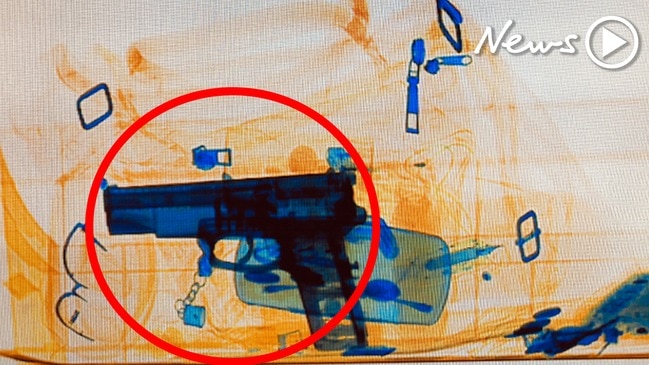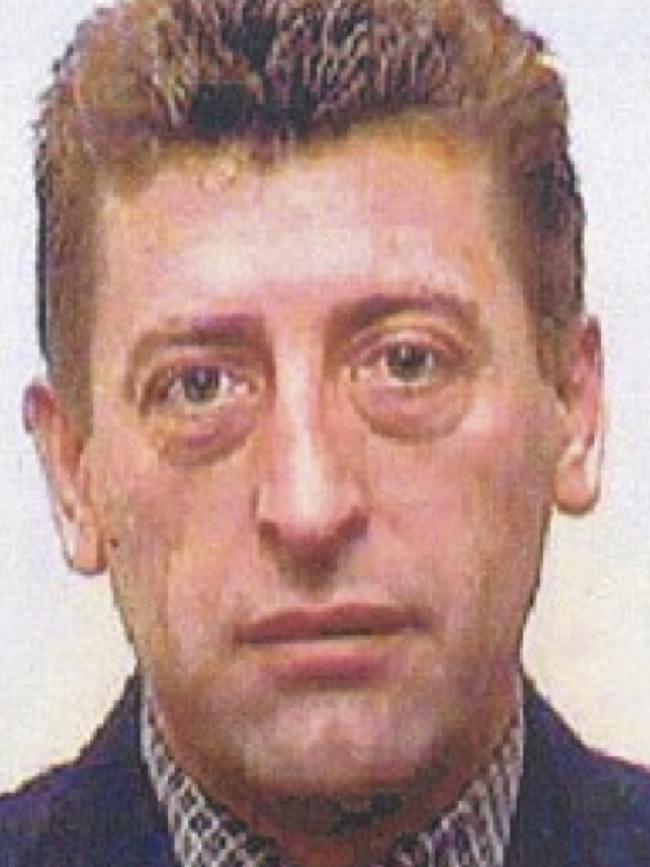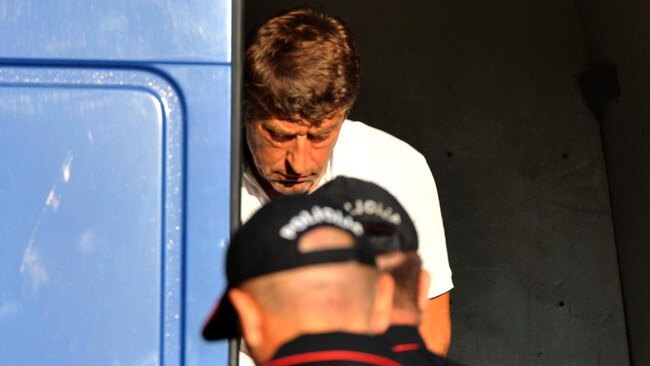Aussie drug lord Vaso Ulic to walk free in year after Montenegro plea deal
Drug kingpin Vaso Ulic, who was pursued by the AFP for more than a decade, will be a free man in just one year after securing a plea deal in Montenegro over two drug shipments to Australia.

Crime in Focus
Don't miss out on the headlines from Crime in Focus. Followed categories will be added to My News.
The man Australian police dubbed one of the country’s biggest drug lords and supplier of MDMA and cocaine to A-list celebrities will walk free from jail in one year after a plea bargain in a court in Montenegro.
Vaso Ulic had been pursued by the Australian Federal Police and law enforcers in two states for more than a decade, with the Federal Government crowing his arrest last year was a “hammer blow” to organised crime in this country.
But in a deal which will see him surrender property, pay a fine and admit guilt to two imports, the 60-year-old will leave jail in one year.

MORE NEWS
Aussie gangsters behind one of world’s biggest drug cartels
Australian crime groups form unholy alliance
Former Kings Cross bagman turned international godfather
After more than 12 months’ trial, Ulic changed his plea to guilty and agreed with the Montenegrin Special Prosecution Service — in exchange for two years in prison — that he was the boss of an organisation that smuggled more than 90kg of drugs into Australia.
After the plea change, Podgorica High Court judge Biljana Uskokovic sentenced Ulic to a total of two years in prison, credited with the one year already spent behind bars during his trial. He also imposed a fine of $163,000 and the seizure of one property related to his crimes worth $490,000.

His two charges and court indictment related to MDMA imports to Fremantle in WA and Port Botany in Sydney in 2007 and 2008 and referenced members of his group as Rade Ljuboje, Dejan Medan, Dimitrios Papadimitro and Fabian Quaid.
Police intelligence pointed to the shipments being destined to become millions of dollars worth of ecstasy pills for business leaders, sporting personalities and A-list celebrities predominantly in Sydney and Melbourne.
The AFP had alleged Ulic ran one of the world’s largest drugs cartels from his heavily-armed fortress-like home in the mountains of Montenegro, pushing drugs about Australia since he lived on the Golden Mile of Kings Cross in the 1980s.
It took years to convince authorities in Montenegro to arrest him and when they did last year, the AFP’s organised crime commander Bruce Hill described it as the end of the road for a “kingpin”.
“We can categorically, without any doubt, say he is one of the kingpins if not the kingpin of bringing drugs to Australia, and it’s not limited to ecstasy, he does cocaine, he does meth, it’s a compilation and then the money laundering aspect that goes with that so he’s a very sophisticated high-level crime figure.”

According to court papers, in April 2007 the cargo ship MSC Monika with about 60 kilograms of high-purity MDMA powder was organised by Ulic to travel from Montenegro to Fremantle.
The Albanian-born Ulic, migrated to Australia in 1979 but fled in 2005, never to return, after being tipped off police were after him. He went on to allegedly network cartels overseas and establish one of the biggest transnational crime groups in the world, importing at least six tonnes a year into Australia alone, but much more to and from other destinations from South Africa to Europe, China, Nigeria and the Americas, with law enforcers from notably the United Kingdom, United States and Italy pursuing the group. A huge money laundering operation was run in Dubai to clean the drugs cash wired about the world via Western Union.
One of Ulic’s long-time connections is the infamous Serbian gangster chemist Dr Milan Zarubica, convicted of multiple drug charges, with an AFP intelligence file pointing to the two as friends since the 1990s. They helped each other sell property and attempt a wine export line from South Australia, suspected of being a cover for crime. The pair admitted to being friends but nothing more.
The conviction of Zarubica, the former son-in-law of Serbian Energy and Mines Minister Aleksandar Antic, was said by the Interior Minister Nebojsa Stefanovic to be “very important also because it is a captagon, a new synthetic drug that is also popular with ISIS fighters”.
